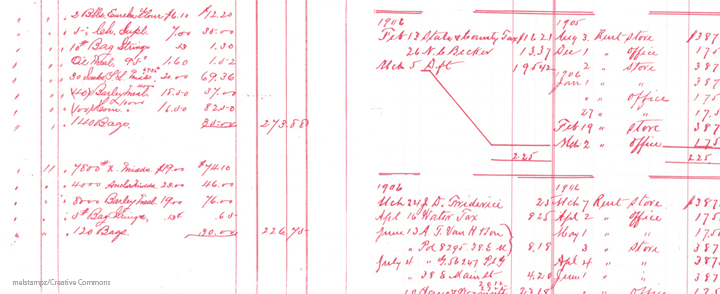By Rabbi Will Berkovitz, Special to the Jewish Sound
(RNS) On the eve of the Day of Atonement, the story goes, when the house was quiet, the tailor went to the closet and took out a ledger.
“Master of the Universe,” he said, “the time has come for You and me to reckon up our sins for this past year.” He began by listing the sins he had committed. Then he went back to the closet, took out a thicker, heavier notebook and said, “Lord, first I listed my sins, and now I will list Yours.”
When he was finished, he said, “To tell the truth, You owe me more than I owe You, but I’d just as soon not keep strict accounts. We are commanded to forgive the wrongs that have been done to us. Why don’t I just forgive You and You forgive me?”
So much of what we do during Yom Kippur is a recount of our sins — great and small. The tradition teaches: For transgressions between individuals and God, Yom Kippur atones. We ask God for forgiveness.
But increasingly, I am feeling like the tailor, that we are not the only ones who need forgiveness.
I have lost friends and family to cancer this year, and I feel outraged at God. I have been sickened by the images from mudslides, hurricanes and earthquakes, not to mention the suffering we humans bring upon each other in the name of religion, politics or just vengeance.
There are times when I feel like washing my hands of this abusive relationship. I want to scream into the whirlwind, into the void I was once sure God filled. I want to scream: “I don’t believe in you! We are alone in the universe. There is no master plan. There is no Power or Creator.”
God may not ask for my forgiveness, but yet I feel a need in my soul to struggle, like a drowning man, to forgive God for all God’s sins against humanity. If I do not forgive God, how can I believe in God? How can I stand and tell others to ask for God’s forgiveness?
When Ebola orphans thousands of children in Africa, I find it very difficult to stand, bow and recite the Barachu — a praise of God. What brings a mother to stand and recite the Kaddish — a declaration of God’s greatness — over her deceased daughter? Yes, I believe in the great and small miracles that surround us every day. And I believe God is present everywhere if we only look.
But that does not absolve God. I am demanding God take responsibility. I demand an accounting.
After I have listed the places where I was not my highest self, the places where I fell, after I continue that hard uncompromising look into my soul, after I ask for forgiveness, I will leave a silence. And then, like the tailor, I will list God’s sins against humanity. The places where God has tested the limits of my faith, those crevasses filled with doubt, anger and disappointment. The vast wasteland of uncertainty and frustration.
My religious life feels like one epic struggle to believe there is some Higher Order in the universe. When I am standing in a place of prayer, I bring my confusion and my doubts. But I ultimately strive to believe God is El Elyon, God on High. I may at times feel like I am talking to myself, but I struggle to believe I am standing before Ha’ribono shel ha’olam – the Master of the Universe. I want to believe there is a God to serve. And I believe that God needs forgiveness. If not for God’s sake, then for my own.
By forgiving God, I make God relevant in my life. By forgiving God, I can allow room for my doubts, my struggles, my confusion. By forgiving God, I maintain my relationship and a connection with God — no matter how tenuous it may be at times.
It is not easy to forgive, but I will.
Because I do not want to write off the relationship.
Because there is too much to be lost by simply walking away.
Because I want my young children to develop their own relationships and come to their own conclusions.
Because despite the pain, sorrow and suffering, I want my universe full of miracles, not devoid of them.
Because I do not want to be one more angry, old cynic in the world.
I want to believe a voice still calls out from Sinai, from heaven.
I want to engage in the eternal conversations with the ancestors and sages. Despite it all, I want to live my life in praise — and awe — in wonder and hope. Even if I am wrong, even if at the end there is nothing but darkness. Despite my overwhelming desire to walk the other way, I will strive to forgive. Despite it all, I want to surround myself with the people of Jacob, of Israel, with those who struggle with God.
That is why I will forgive God.
And as the final shofar blasts and the gates of heaven close, I want to feel I am forgiven by God. I have faith in the power of that two-way forgiveness. When I forgive God, God becomes a force in the world, not some dusty ancient relic. When I forgive God, God reigns. And God regains some exalted place in the universe and in my life.
So, I will take the lead and forgive God. I will shout forgiveness into the whirlwind. And please God, forgive us. Please God, forgive me.
Rabbi Will Berkovitz is chief executive officer of Jewish Family Service of Seattle, a 122-year-old agency that delivers essential human services. This article first appeared at Religion News Service.
